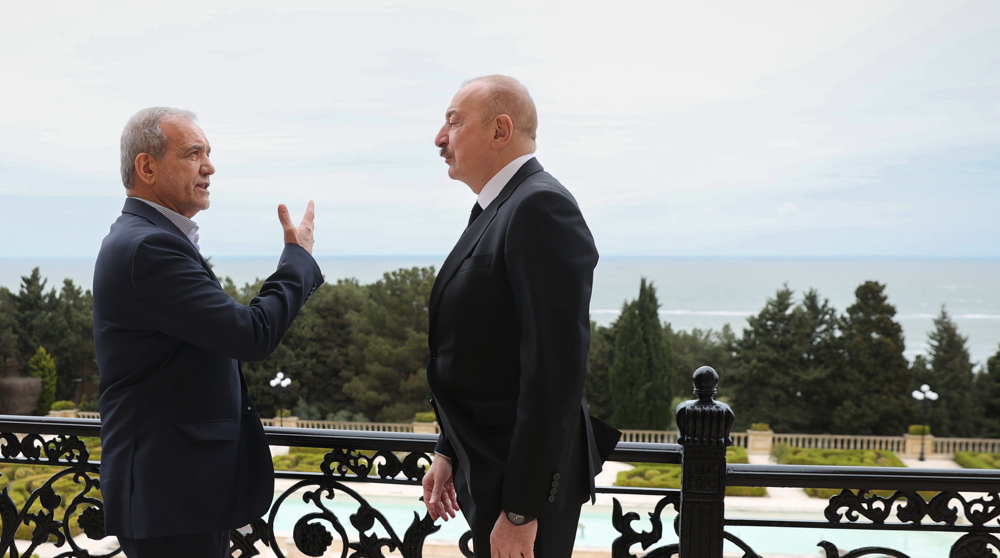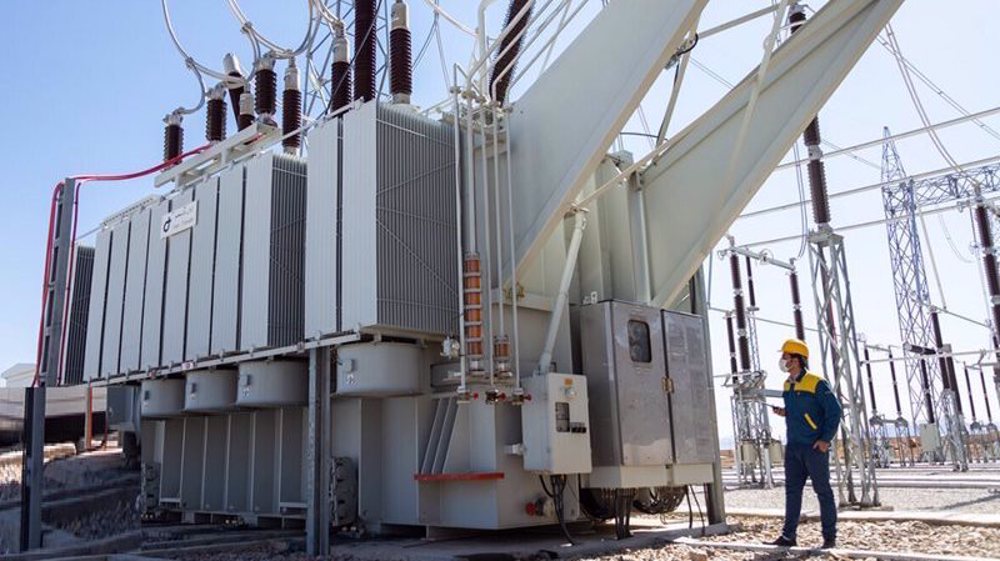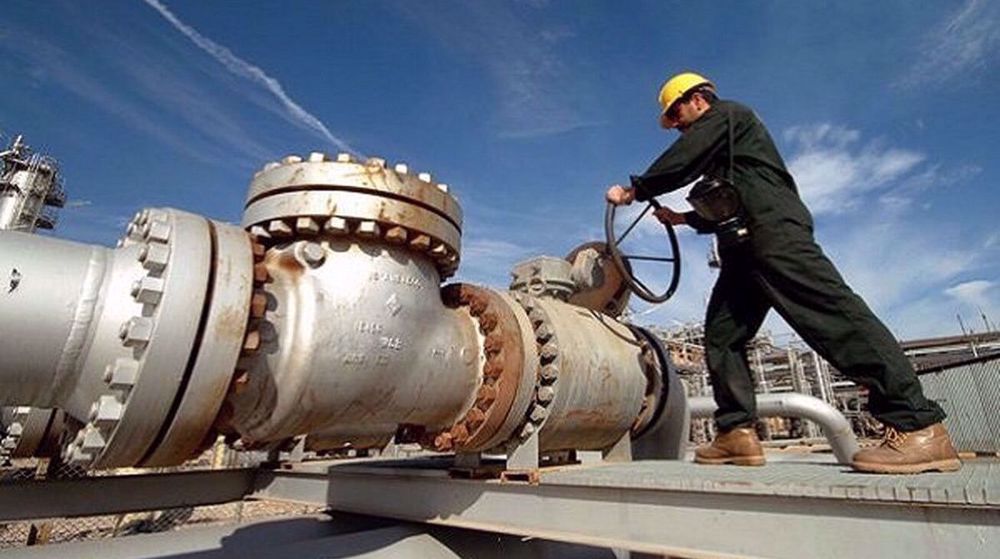Intl. firms negotiate $200 billion of oil deals in Iran
Asian and European companies are negotiating participation in Iran’s oil and gas development projects which need $200 billion worth of investment, according to Minister of Petroleum Bijan Zangeneh.
Iran looks to absorb 65% to 70% of this sum from abroad, the minister told Iran’s Parliament where he was Tuesday to answer questions about a $5 billion gas deal signed with French giant Total earlier this month.
Deputy Minister of Petroleum for International Affairs Amir Hosssein Zamaninia said the deal with Total has set the ball rolling for the conclusion of more contracts with international companies.
“I can assure you this isn't the last one. We'll see other contracts being made within the next few weeks," Zamaninia was quoted as saying on the sidelines of a conference in Istanbul on Tuesday.

Companies most interested
Zamaninia cited BP, Russia's Gazprom and Lukoil, and Malaysia's Petronas among the international companies which were having discussions with the country.
According to vice chairman of the board of directors of the Iranian Petroleum Federation Reza Paydar, Denmark has proposed a $1 billion investment contribution to Iran's development plans, adding the two sides will soon begin to establish communication in this regard.
“The highest interest in investing in our country has been received from Austria, Norway, Sweden, the United Kingdom, Germany, and in a very limited form from Italy and Spain,” he told IRNA news agency.
In the upstream sector, 53 projects are currently prioritized with an estimated $108 billion in foreign investment.
“Our expectation is that this amount will be realized within a maximum of three to five years, which will pave the way for future investments in the next program,” Paydar said.
For downstream operations, two fields of activity have been defined in the refinery and petrochemical development sectors.
The total investment required in the two sectors is about $60 billion, some $40 billion of which will go to the petrochemicals and $20 billion to refining and converting crude oil into hydrocarbon products, Paydar said.
Iran’s oil industry officials have previously put total investments required in various sectors of the oil industry at $445 billion, including $230 billion in oil, $130 billion in gas, $20 billion in refining and distributing oil products, and $65 billion in the petrochemical industry.
Steep rise in gas exports
On Tuesday, Zamaninia told the Istanbul conference that Iran's gas production would rise to 1 billion cubic meters a day by the end of the year from the current 800 million cubic meters (mcm) per day.
The country plans to establish a capacity for 365 mcm a day of gas exports by 2021, which is higher than the volume which the world's top liquefied natural gas producer Qatar is currently exporting.

Zamaninia said Iran’s export targets for the immediate future were its neighbors, including Iraq, Pakistan, Oman, the UAE and Kuwait but negotiations were also underway with the Turkish government for the transit of Iranian gas to Europe.
“The transfer of Iran's gas to Europe is just an idea, because gas exports under the current situation are not cost-effective for Iran due to the international prices of gas,” he said.
According to a report by industry research group Cedigaz on Tuesday, European natural gas demand will barely register any growth from its current level of some 480 billion cubic meters a year (bcm/year), with consumption set to begin to decline post-2025.
The Paris-based group forecasts that Europe is the only part of the world where gas demand is stagnant, while predicting strong growth elsewhere, Platts reported.
China and the Middle East are expected to lead the way in gas demand growth, accounting for respectively 28% and 24% of the incremental volume over the projection period to 2035, Cedigaz said.
At the national level, the largest growth in gas demand is expected in China, India, Iran, the US and Saudi Arabia.
Sanctions unlikely
Iran has 18.2% of the world's proven gas reserves, ahead of Russia and Qatar, according to the BP Statistical Review of World Energy.
Total’s deal earlier this month involves helping Iran increase gas output from the giant South Pars gas field, which the country shares with Qatar.
The deal for phase 11 of the field marked the first by a major global energy company signed with Iran since the easing of sanctions against Tehran in January 2016.

Under the deal, Total, Iran’s Petropars and France’s CNPC are about to produce 2 billion cubic feet (56 million cubic meters) of natural gas per day for 20 years, Zangeneh told Iranian lawmakers on Tuesday.
According to the minister, the annual value of products from the phase is estimated at $5 billion, in which Total has a 50.1% stake, alongside Chinese state-owned energy company CNPC with 30% and National Iranian Oil Co subsidiary Petropars with 19.9%.
Zangeneh said the contract would help, “God willing”, prevent the US from re-imposing sanctions on the Islamic Republic.
"With the contracts signed last week, with the Chinese company and Total and the Iranian company, that is also a very good indication that the assessment by international oil companies is that the return of sanctions is very unlikely, if not impossible," Zamaninia said in Istanbul.

Iran mulls buying oil from Azerbaijan amid warming ties: Report

Iran more than halved its power grid losses to 10% in 16 years: Expert

Iran, Russia agree to transfer gas via Azerbaijan: Minister
Euro-Med: At least 94% of those killed in Gaza are civilians
VIDEO | Expo 2025 in Tehran showcases Iran trade, investment opportunities
VIDEO | Fresh US airstrikes target more Yemeni civilians
UN: US strikes in Yemen pose growing risk to civilians
VIDEO | Iran economic diplomacy
Iran mulls buying oil from Azerbaijan amid warming ties: Report
Israeli settlers storm al-Aqsa Mosque amid intensified West Bank raids
Canadians take to the polls as Trump renews US takeover push







 This makes it easy to access the Press TV website
This makes it easy to access the Press TV website